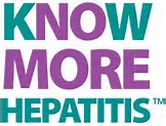Getting Screened For Viral Hepatitis May Help to Save Your Life
by Chana A. Rabiner, Ph.D.
(NAPSI)—There’s good news for the millions of Americans at risk for a potentially fatal medical condition, viral hepatitis. The simple step of medical screening can lead to lifesaving treatment.
A Collection Of Diseases
Viral hepatitis is actually a collection of very serious diseases. By definition, hepatitis means “liver inflammation,” and viral hepatitis is a general name for five unrelated viruses infecting the liver. These viruses can either be acute or chronic, with the most common being hepatitis A, B and C.
When the condition is chronic and left untreated, it can lead to scarring or damage to the liver or, in some cases, liver cancer. In fact, viral hepatitis is not only the leading cause of liver cancer but it is also the prime reason a person may need a liver transplant.
In the United States, nearly 4.5 million people are infected with viral hepatitis, with just over 3 million infected with hepatitis C. In addition, just over 1 million are infected with hepatitis B.
Unfortunately, most people with the condition don’t know that they are infected; people can be infected for decades without ever having symptoms or feeling sick.
While viral hepatitis can be acquired in a number of different ways, and can impact or infect anyone, the most common way to be infected with the hepatitis C virus (HCV) and hepatitis B virus (HBV) is through contact with the blood or bodily fluids of an infected person.
Those Most At Risk
Research shows that hepatitis C disproportionately impacts two groups of people: those who were born between 1945 and 1965 and those who use drugs through injection (IDU).
People who were born between 1945 and 1965 are five times more likely to be infected with hepatitis C than other age groups. This is why the Centers for Disease Control and Prevention and the United States Preventive Services Task Force recommend a one-time testing for hepatitis C for people born during that period.
In addition to those in this age group, the intersection of behavioral health disorders and viral hepatitis is quite profound, with 40 to 70 percent of injection drug users chronically infected with HCV and up to 11 percent chronically infected with HBV.
Moreover, those who inject drugs currently account for 60 to 70 percent of new hepatitis infections in the United States. One reason for this is that hepatitis C infects at a much greater rate than the other diseases that are transmitted through injection drug use, such as HIV. This happens because the virus can live longer outside the body than those other diseases can. In fact, it can live for days on the paraphernalia used to inject drugs, including syringes, cotton and cookers.
Several other behavioral health disorders lead to increased risk for getting hepatitis. For instance, approximately 20 percent and 23 percent of people with serious mental illnesses (SMI) are infected with HCV and HBV, respectively, while between 14 percent and 36 percent of those who misuse/abuse alcohol are infected with HCV. Addressing these behavioral health disorders can also help stop the spread of viral hepatitis.
Screening Can Save Lives
Numerous resources exist to help you assess your risk for hepatitis. The first step is to find a place to get tested. The next step is to learn more about hepatitis and how to prevent infection. Doing so can be lifesaving, as there are effective treatments for hepatitis that can mitigate the effects of the disease. In fact, there are new treatments for hepatitis C that can, in some cases, even cure it.
Another resource is a publication from the Substance Abuse and Mental Health Services Administration (SAMHSA) called “Take Action Against Hepatitis C: For People in Recovery From Mental Illness or Addiction”. This booklet presents basic information about hepatitis C for people with mental illness or substance use disorders.
Knowing your HCV status can help to save your life. To learn more, visit www.knowmorehepatitis.org or the SAMHSA online store at http://store.samhsa,gov.
Rabiner is a Senior Public Health Advisor for the Substance Abuse and Mental Health Services Administration.
SAMHSA, the agency that leads public health efforts to advance the behavioral health of the nation to reduce the impact of substance abuse and mental illness on America’s communities, offers a variety of resources, including information and treatment.
Find hepatitis testing locations near you at https://npin.cdc.gov/disease/viral-hepatitis




